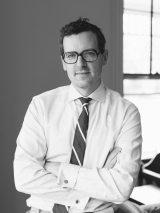Welcome to Palliative Care McGill
 In 1967, Cicely Saunders (later, Dame Cicely) founded St. Christopher’s Hospice in Sydenham on the southern edge of London, England. Building on her experiences in caring for the dying as a nurse, social worker, and then physician, she articulated the presence and interaction of multiple dimensions of suffering experienced by people as they approached the end of life. To address these, she conceptualized a collaborative and multidisciplinary approach to caring for people and their families. She put into practice the idea that, as she said, “you matter because you are you, and you matter until the end of your life.”
In 1967, Cicely Saunders (later, Dame Cicely) founded St. Christopher’s Hospice in Sydenham on the southern edge of London, England. Building on her experiences in caring for the dying as a nurse, social worker, and then physician, she articulated the presence and interaction of multiple dimensions of suffering experienced by people as they approached the end of life. To address these, she conceptualized a collaborative and multidisciplinary approach to caring for people and their families. She put into practice the idea that, as she said, “you matter because you are you, and you matter until the end of your life.”
Dr. Balfour Mount brought this approach to McGill University and the Royal Victoria Hospital in Montreal. In seeking a word or phrase that avoided some of the negative connotations associated with the word hospice among the French-speaking of Quebec, Dr. Mount landed on “pallative care.” Palliative derived from the Latin palliare, which meant to cloak or shield, and implied a form of protection from the suffering often wrought by serious illness or its treatments. In writing about the recently opened Royal Victoria Palliative Care Unit in the Canadian Medical Association Journal in 1976, “Bal,” as he was and remains known to friends and colleagues, wrote of the team’s “positive and creative attitude to death and bereavement.”
As we emerge from what we hope was the worst of a global pandemic, and as we grieve the loss of friends, colleagues, those too-many millions unknown to us, and what we knew to be normal, the idea of a positive and creative attitude to death feels almost unbearable. Our greater collective awareness of injustice, thrown into stark relief by the pandemic and global events that transpired within and because of it, can leave one feeling hopeless. Yet, as Drs. Saunders and Mount and so many others of us in this field of hospice and palliative care have learned from our patients and their families, there are insights to be gained under threat of dying. There is light to be found in the darkest corners. We can experience healing even as we die. Many of us feel that we have gained new insight into just how precarious and precious life is.
Among the insights I have gained in the past decade of work in this field, and over the last 20 months, is the importance of relationships. Mattering is a relational construct – we matter to someone; someone matters to us. Yet the longstanding tension in healthcare between disease-centered and person-centered models of care have paid little attention to these relationships. Palliative care has infused healthcare with expertise and evidence that highlights the value of whole person care, interdisciplinarity, symptom management, and communication. Meanwhile, what I think we have proven to be very good at, out of necessity, is building relationships that enable and contribute to a person’s search for meaning in life when life may be drawing to its close.
As we embark on the next chapter of Palliative Care McGill’s history, I hope to honor our past by making our implicit focus on relationships explicit. Through our scholarship, teaching, and clinical care, I hope to cast a light on the relationships we have with ourselves and our loved ones, the relationships we cultivate in the spaces in which people affected by serious illness seek healthcare, and the systems that must be transformed to enable and enhance these authentic healing relationships. I believe this has the potential not only to accelerate the transformation of care for people affected by serious illness, but also to transform healthcare writ large. I believe that this will be our part in bringing equity and justice to healthcare. And I believe that this is how we will best honor the legacy of those for whom we’ve had the privilege of caring.